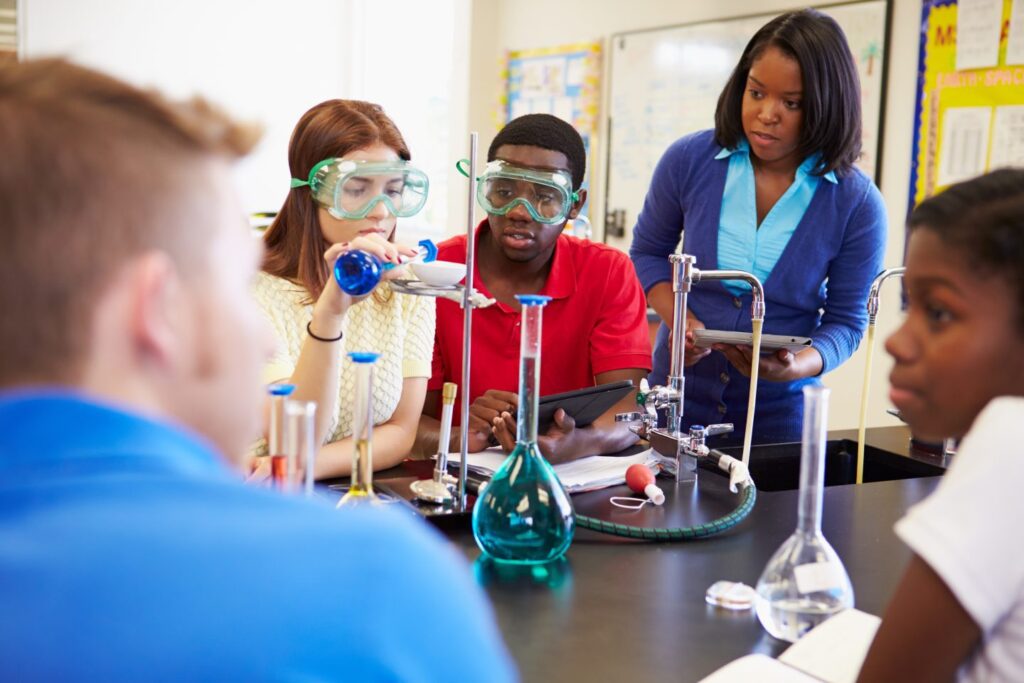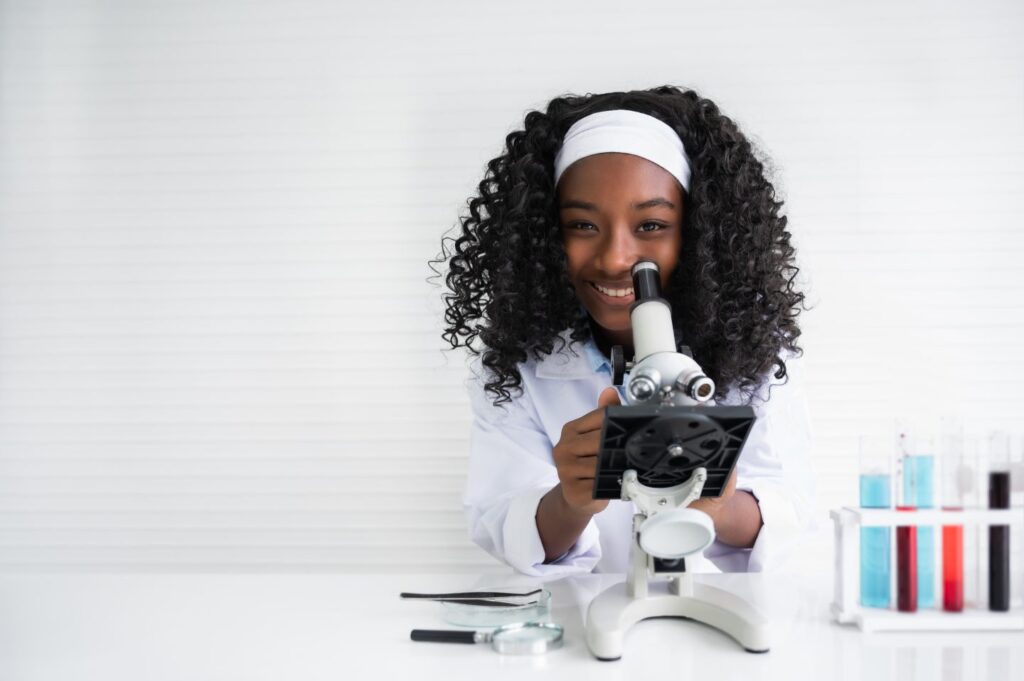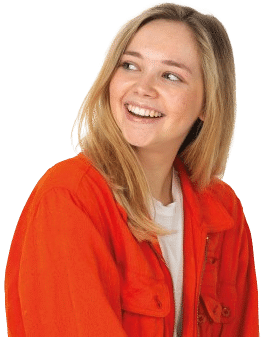
For those taking dual award (combined science), it is incredibly useful to have a GCSE Combined Science tutor to help further your understanding of all three sciences and therefore further your end grade.
GCSE Science is a compulsory option, but you can choose to study it in two different ways:
- Triple Award: where you will study three stand-alone GCSEs, one each in Biology, Chemistry and Physics
- Double Award (or ‘Dual Award’): where you will cover all three sciences combined and get two GCSEs at the end of it
Regardless of which one you take, you’ll cover all three subjects; the key difference is the depth you go into, the number of exams you take and the number of individual GCSE qualifications you come away with.
If you apply to a science subject at university – and by ‘science subject’ we mean something like medicine or nursing. As well as taking Biology, Chemistry and Physics at A-level – the entry requirements for a course are likely to include some specifics around GCSEs.

Exam boards
It’s important to identify which exam board your child’s school is following for GCSE Combined Science as the topics can vary. This is one of the first questions we will ask you should you give us a call. For students taking the Triple Award, it is possible for students to select different exam boards for different sciences, but this is rare.
The main exam boards for GCSE Combined Science are:
- Assessment and Qualifications Alliance (AQA)
- Oxford, Cambridge and RSA Examinations (OCR)
- Edexcel
- International General Certificate of Secondary Education (IGCSE)
Most exam boards include several compulsory practical experiments that students will normally complete at school. IGCSE is the exception, with the option to sit a written paper that tests experimental understanding. This can suit students who are home-schooled without access to a well-equipped lab.
What is GCSE Combined Science all about?
GCSE Combined Science (often referred to as double science) is where students study all three sciences together, sitting two papers and obtaining 2 GCSEs. Students will have a strong understanding of all three sciences in order to pass the exam.
Combined Science often has less content to cover than ‘triple’ science. This is an advantage as you will have more time to focus on revising for the exam.
GCSE Combined Science tutor will help learners to:
- Increase their understanding of the technological world
- Take an informed interest in scientific matters
- Recognise the usefulness (and limitations) of scientific method, and how to apply this to other disciplines and in everyday life
- Develop relevant attitudes, such as a concern for accuracy and precision, objectivity, integrity, enquiry, initiative and inventiveness
- Give an interest in, and care for, the environment
- Develop an understanding of the scientific skills essential for both further study and everyday life
How to do well with the help of a GCSE Combined Science Tutor
Each of the three sciences brings different challenges and will suit different individuals better. Biology, for example, suits candidates who are better at memorisation, and Physics suits students with strong mathematical skills. With the assistance of your GCSE Combined Science tutor.
Despite these differences, success in all three sciences depends on the ability to memorise course content accurately and practice applying this to past papers.
Memorisation strategies
There is no quick fix for the large amount of information that students are expected to memorise for GCSE Science. A GCSE Combined Science tutor will help to determine which areas are weaker and help you develop these to a better your final grade.
Using past papers/mark schemes
It is difficult to achieve a top grade in GCSE Combined Science without dedicating time to past papers and learning the exact wording that examiners expect. For example, even a student with a confident grasp on the electrolysis topic may fall short when asked to define an “electrode” if they haven’t seen this question before. It is rare for an exam question to be completely unique, and students who have revised with past papers will begin to spot patterns and recognise certain questions. Exams can be repetitive, and students should take advantage of this.

What is different for this year? Exam cycle 2022
We understand that GCSE Combined Science will not be changed for the exam cycle 2022.
Some exam boards are being lenient with their practical components in recognition of the challenges involved in providing frequent hands-on practical experiences for all students. In some cases, students can study the required practical activities through the use of demonstrations and simulations, if it’s not possible for them to carry out all of the practical activities.
Sitting public exams for the first time
Sitting important public exams comes with pressures that your child may never have experienced before. Although a small amount of pressure can help your child’s performance on the day, it is important they have some time to unwind. It is important for students to take some time to relax, taking time to do something social and something they love.
GCSE Combined Science Tutor
The best way of supporting your child throughout their Combined Science GCSE. Is to give them the tools and skills to succeed. An effective way to do this is having a GCSE Combined Science tutor. We will ensure your GSE Combined Science tutor has a wealth of experience in teaching Physics. They will help build your child’s confidence in tackling exams, through building their knowledge of the syllabus.
Other GCSE Articles you may find useful:
London’s No.1 Tuition Agency
Media coverage
Mentor Education won Tutoring Provider of the Year at the Education Investor Awards in 2022 and 2024. We also won at the National Tutoring Awards and an Entrepreneur of the Year award in 2024. We are regularly featured in the Education Press, including School Report Magazine, the Good Schools Guide, and more.
Our Clients Journeys
Case studies
At Mentor Education, we owe our success to the remarkable individuals who make up our team of tutors. They are more than just educators—they are mentors, motivators, and role models who inspire their students to reach their full potential. Our GCSE tutors are all qualified teachers and subject specialists, with many Heads of Department and Examiners on our books.
Customers love what we do
What our parents have to say about Mentor
We are so proud of our 5 star reviews and GCSE testimonials which are a testament to the relationships our teachers build with their students and the success they create together.

